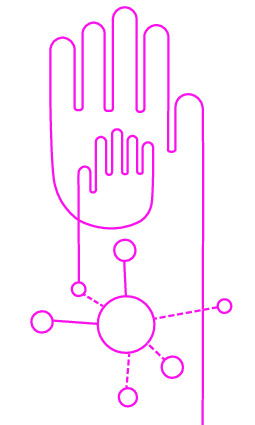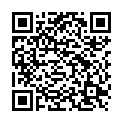|
|
|
| Module code: PdK-102 |
|
|
2V+1U (3 hours per week) |
|
6 |
| Semester: 1 |
| Mandatory course: yes |
Language of instruction:
German |
Assessment:
Written exam: graded
[updated 01.10.2020]
|
PdK-102 (P322-0182) Childhood Education, Bachelor, ASPO 01.10.2017
, semester 1, mandatory course
PdK-102 (P322-0182) Childhood Education, Bachelor, ASPO 01.10.2019
, semester 1, mandatory course
|
45 class hours (= 33.75 clock hours) over a 15-week period.
The total student study time is 180 hours (equivalent to 6 ECTS credits).
There are therefore 146.25 hours available for class preparation and follow-up work and exam preparation.
|
Recommended prerequisites (modules):
None.
|
Recommended as prerequisite for:
|
Module coordinator:
Prof. Dr. Iris Leisner-Ruppin |
Lecturer: Prof. Dr. Iris Leisner-Ruppin
[updated 02.09.2019]
|
Learning outcomes:
After successfully completing this course, students will be able to provide information about the historical development that led from social work and social pedagogy to the discipline and profession of social work.
They will be able to name historical representatives from the fields of social work and childhood education and be familiar with the ideas associated with them.
Students will have an overview of historical and current models from the fields of social work and childhood education.
They will be able to transfer relevant models to current fields of social work and childhood education.
Students will have insight into the logic and heterogeneity of the research, practice and fields of childhood education and be able to identify their main possibilities and problems. Students will draw up a field of work analysis for a selected field of action.
[updated 01.10.2020]
|
Module content:
"Social work" and "childhood education" are modern generic terms for complex connections within science and society. "Social work", like "childhood education", refers to specific areas of theory and practice within the tradition of scientific thought and action. As disciplines, childhood education and social work are part of the educational and social sciences (just as medicine is a part of natural science); of course, other reference or auxiliary sciences (e.g. ethics, politics, psychology, paediatrics) are also relevant.
As a profession, both are part of a rational practice in a democratic society and, like all professions, both rely on theoretical justifications and to case-oriented actions. The development of social work, for example, has its origins in the spirit of caring for the poor in response to the crisis of poverty or other emergencies, in social pedagogy the response was to educational and educational crises, and in childhood pedagogy the driving force was advocacy for children, in order to help promote their autonomy and understand, protect and develop them as players in a generational order. This requires, for example, insight into a child´s need for upbringing and visuality and clarity about the development facts. That is why this lecture is structured in such a way, as to help students learn in a research-oriented manner: This includes listening, writing protocols, reading and thinking for themselves. Students will learn about how social work and childhood education deveoped, the logic of human development and selected research topics and fields of practice.
With reference to the lecture, central topics pertaining to social work and childhood education will be examined in depth. This will help students to understand the cave parable presented in the lecture (cf. Kraimer 2013, p. 17 ff.), as well as the content of the course unit in general. Thus, students´ basic understanding of the respective topics is deepened by way of methodically guided steps. The goal is to gain an initial overview - laid down by the lecture - of the practical fields, theoretical traditions and research perspectives. Based on traditional approaches in social work and childhood education, relevant passages from classic works of scientific literature will be discussed. Examples include Pestalozzi´s Stans letter, Solomon´s Approach to social diagnosis, Adorno´s concept of education to maturity, Plato´s Dialogue on "Socratic Midwifery", Fröbel´s Treatise on The Education of Man, Ariès´ "History of Childhood", and Piaget´s concept of spiritual development. These works will be analyzed with regard to current practices or media stagings and discussed in the context of current research concepts.
Introduction to the different fields of social work and childhood education. Students will receive an overview of the fields of social work and childhood education and their organizational frameworks. Representatives from professional practice will be invited and present their respective fields of work within the institutional structure, discuss relevant legal foundations, methodological approaches, addressees and key conflicts of practical action. Individual fields of work will be examined in more detail within the framework of workshops. The course culminates in a job fair event where institutes from the fields of social work and childhood education, professional associations and international contacts from the faculty will introduce themselves and their offers to the students.
[updated 01.10.2020]
|
Teaching methods/Media:
Lecture
- Exercises within the framework of the seminar
- Independent study: reading and processing scientific literature
- Discussions about basic concepts and models in small groups and with the whole class
-Short presentations
The active participation of each student will be reflected in their respective lecture notes. These form a working basis and a point of reference for the seminar paper, which is required from each student (presented in writing and orally and written according to scientific standards). Requirements and topics for the seminar papers will be announced within the framework of the course.
- Tutorial with workshops
[updated 01.10.2020]
|
Recommended or required reading:
Lecture
Berg, Christa (2004). Kind/Kindheit. In: Benner, Dietrich/Oelkers, Jürgen (Hg.) (2004). Historisches Wörterbuch der Pädagogik. Weinheim und Basel: Beltz Verlag, pp. 497-518.
Honig, Michael-Sebastian (2010). Geschichte der Kindheit im _Jahrhundert des Kindes_. In: Krüger, HeinzHermann/Grunert,Cathleen (Hg.) (2010). Handbuch Kindheits- und Jugendforschung. 2., aktualisierte und erweiterte Auflage. Wiesbaden: Verlag für Sozialwissenschaften, pp. 335-358.
Reyer, Jürgen (2004). Kindergarten. In: Benner, Dietrich/Oelkers, Jürgen (Hg.) (2004). Historisches Wörterbuch der Pädagogik. Weinheim und Basel: Beltz Verlag, pp. 518-527.
Thole, Werner (Hg.) (2011). Grundriss Soziale Arbeit. Ein einführendes Handbuch. Wiesbaden: VS Verlag für Sozialwissenschaften.
Tutorial
Amthor, Ralph-Christian (2012). Einführung in die Berufsgeschichte der Sozialen Arbeit. Weinheim und Basel: Beltz-Juventa, pp. 101-115.
Ariès, Philippe (1992): Geschichte der Kindheit. 10. Auflage München: DTV Wissenschaft.
Bamler, Vera et al. (2010). Teil I: Geschichtliche Zugänge zur Elementarpädagogik. In: Bamler, Vera et al. (Hrsg.). Lehrbuch Elementarpädagogik. Theorien, Methoden und Arbeitsfelder. Weinheim, München: pp. 15-44.
Füssenhäuser, Cornelia/Thiersch, Hans (2015). Theorie und Theoriegeschichte Sozialer Arbeit. In: Otto, Hans Uwe/Thiersch, Hans (Hg.). Handbuch Soziale Arbeit. Fünfte, erweiterte Auflage. München und Basel: Reinhardt. pp. 1741-1755.
[updated 01.10.2020]
|


